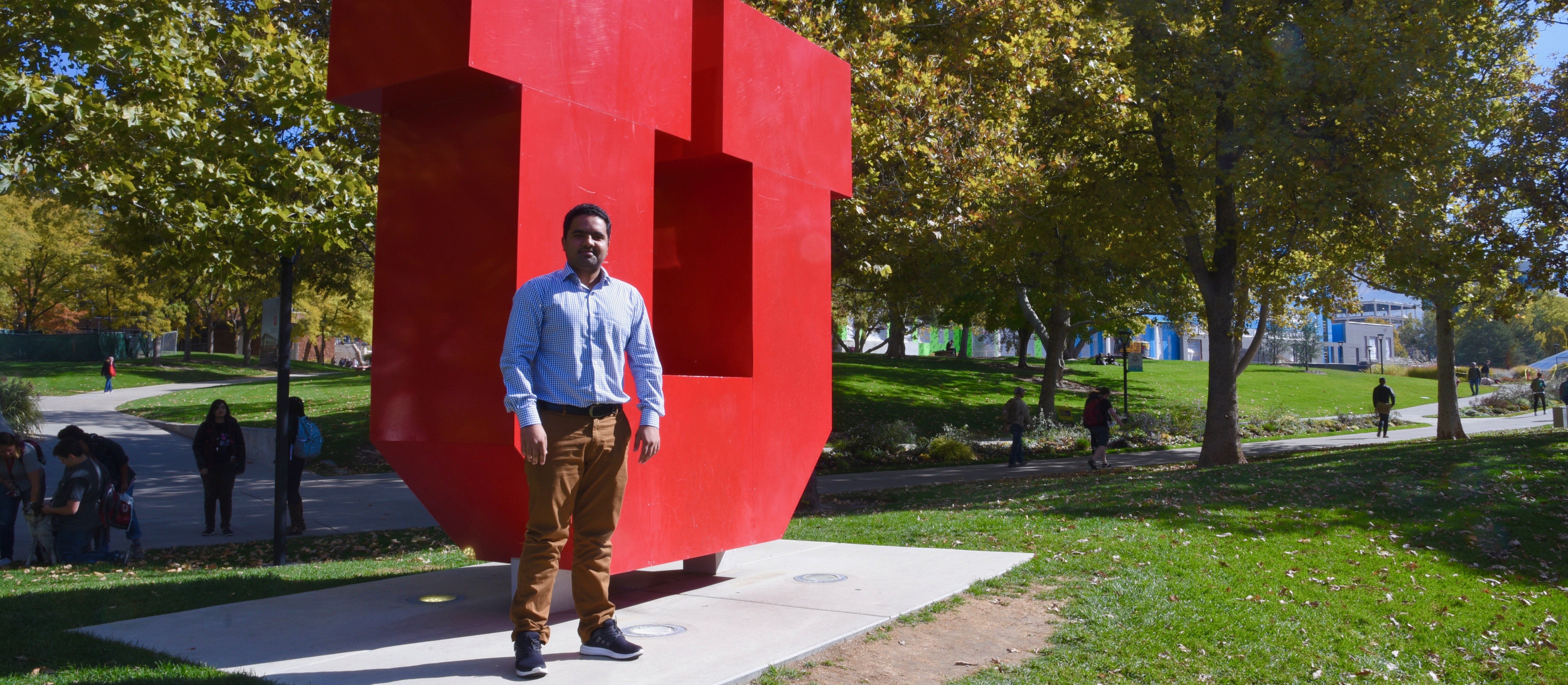
It is a long way from Jamshoro, Pakistan to the campus of the University of Utah, and the journey involves more than just geography. There are gaps in culture and custom, in language and history. Hammad Malik has navigated the path well.

Hammad first came to the U in 2016 as a part of the US-Pakistan Centers for Advanced Studies in Water student exchange program. Today he is a PhD student in the metallurgical engineering department working on research on the cutting edge of using nanotechnology to purify contaminated water.
The experience of the exchange program opened up a whole new world of possibilities for Hammad. He was introduced to the rigorous pedagogical approach of the U’s engineering program. He interacted with inspired teachers, modern technology, and was trained in the latest research techniques.
Upon returning to Pakistan after the exchange program, Hammad completed his masters degree in environmental engineering at Mehran University of Engineering and Technology. His thesis focused on the development and engineering of nanofibers. Today Hammad works closely with Professor Krista Carlson in her nanotechnology lab. His research involves using titanium oxide to grow nanotubes that can be used in a new technology for a portable water purification device that Professor Carlson is helping develop. It seems like a perfect fit.
A stated goal of the USPCASW, a program run through the U’s Water Center and funded by a grant from USAID, is to build up the capacity of individuals to serve as “agents of change” within their communities. Hammad plans on returning to Pakistan once he finishes his PhD studies, and to apply his expertise to working on the water security challenges facing his home country.
Hammad has some advice to offer other students coming through the USPCASW exchange program. “This is a big opportunity for you,” he says. “Dedicate your time, take advantage of all the resources made available to you. This program can really increase your capacity to succeed—to make a difference.”
